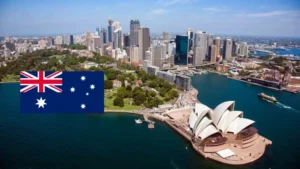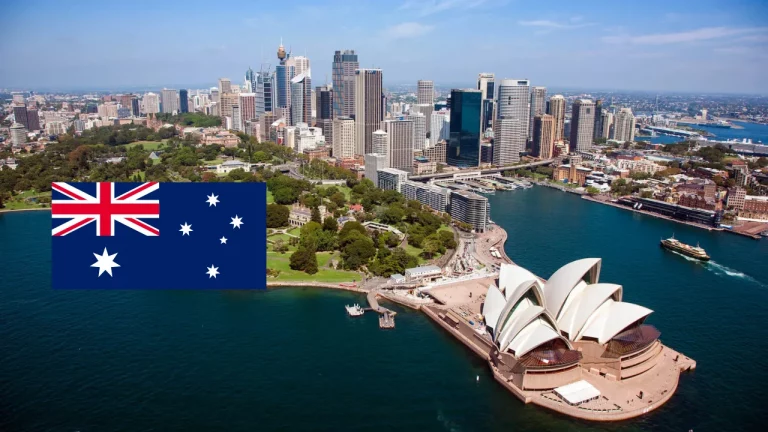Moving to Australia with Minimal Funds: A Practical Guide
1. Visa Viability: Your Foundation for Success
Before anything else, ensure you have a viable visa option. Research different visa types and carefully assess your eligibility.
Skilled Migration visas: If you have skills in demand, explore options like the Skilled Independent visa (subclass 189) or State Nominated visas (subclass 190). These often require skills assessments, English language tests, and meeting points thresholds.
Working Holiday visa (subclass 417): This popular option allows eligible passport holders (typically aged 18-30, or 35 for some countries) to work and travel for a year, extendable to two or three years depending on specific conditions.
Student visa (subclass 500): If further study is on your agenda, a Student visa allows you to enroll in a registered course and work limited hours.
Partner or Family visas: If you have a partner or family member who is an Australian citizen or permanent resident, explore these options for a more secure pathway.
Crucially, remember that visa application fees can be substantial. Factor this into your budgeting from the outset.
2. Budgeting Like a Boss: Knowing Where Your Money Goes
A meticulous budget is your best friend. Consider these initial expenses:
Visa Application Fees: As mentioned above, this is a non-negotiable cost.
Flights: Shop around for the best deals. Consider flying during off-peak seasons for cheaper fares.
Essential Travel Insurance: Protect yourself against unexpected medical expenses and travel disruptions.
Initial Accommodation: Plan for at least a few weeks of temporary accommodation (hostels, Airbnb, cheap hotels) while you search for a more permanent place.
Living Expenses: Calculate your estimated weekly costs for food, transportation, and basic necessities.
Bond/Rent in Advance: When you find a place to live, you’ll likely need to pay a security deposit (bond) and rent in advance.
Track every penny! Use budgeting apps or spreadsheets to monitor your spending and identify areas to cut back.
3. Saving Strategies: Every Little Bit Counts
Saving for your move requires dedication and creativity. Consider these strategies:
Reduce Discretionary Spending: Cut back on non-essential expenses like eating out, entertainment, and unnecessary subscriptions.
Sell Unwanted Items: Declutter your home and sell unwanted furniture, clothes, and electronics online or at garage sales.
Take on Extra Work: Consider a part-time job, freelance work, or odd jobs to boost your income.
Minimize Debt: Pay down any existing debts to reduce your monthly expenses in Australia.
Consider a Crowdfunding Campaign: If you have a compelling story, crowdfunding can be a viable option to raise funds.
Remember, small sacrifices now will pave the way for your Australian adventure.
4. Accommodation Hacks: Finding Affordable Shelter
Accommodation costs are a significant expense in Australia. Explore these options:
Share Houses: This is a common and affordable option, especially in major cities. Websites like Flatmates.com.au and Gumtree are good resources.
Hostels: A budget-friendly option for the first few weeks while you search for a more permanent place.
Suburban Living: Consider living outside the city center where rent is generally cheaper.
House Sitting/Pet Sitting: Look for opportunities to live rent-free in exchange for caring for someone’s home and pets.
Be proactive in your search and don’t be afraid to negotiate rent or ask for a discount.
5. Finding Work Quickly: Securing Your Financial Future
Having a job lined up before you arrive is ideal, but not always possible. Focus on these strategies:
Update Your Resume/CV: Tailor your resume to the Australian job market, highlighting relevant skills and experience.
Network Online: Connect with recruiters and potential employers on LinkedIn and other professional platforms.
Utilize Job Boards: Regularly check websites like Seek, Indeed, and Gumtree for job postings.
Consider Temporary Agencies: These agencies can help you find short-term or casual work.
Be Flexible: Be open to different types of work, even if it’s not your dream job. Hospitality, retail, and farm work are common entry-level options.
Persistence is key! Don’t give up if you don’t find a job immediately.
6. Resourcefulness and Cost-Cutting: Living the ‘Aussie’ Way
Embrace the ‘Aussie’ spirit of resourcefulness and find ways to save money:
Cook at Home: Eating out can be expensive. Cook your own meals and pack lunches.
Utilize Public Transport: Public transportation is generally efficient and affordable. Consider purchasing a weekly or monthly pass.
Take Advantage of Free Activities: Australia offers plenty of free activities, like exploring parks, beaches, and museums.
Shop at Discount Stores: Look for bargains at Aldi, Kmart, and other discount stores.
Join Local Community Groups: Connect with other expats and locals for support and advice.
Living frugally doesn’t mean sacrificing your enjoyment of life. It’s about making smart choices and appreciating the simple things.
 By following these tips, you can turn your dream into a reality and embark on an unforgettable Australian adventure. Good luck, and welcome Down Under!
By following these tips, you can turn your dream into a reality and embark on an unforgettable Australian adventure. Good luck, and welcome Down Under!





